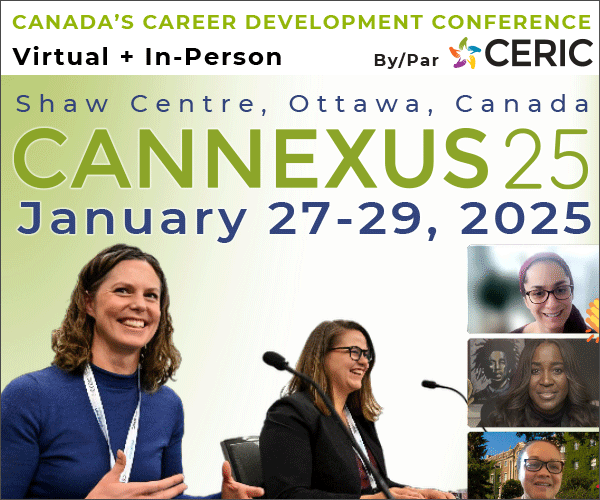The Effects of the Online Self-Directed Search on the Career Decision State
Keywords:
career decision-making, self-directed search, career programming/interventions, undergraduatesAbstract
An exploratory study examined the effects of a counselor-free career intervention, the online Self-Directed Search Form R Fifth Edition (SDS), with 114 undergraduate students at three levels of career decision state or readiness for career decision making. The effects of this intervention included (a) changes in the career decision state low (d = 1.14), medium, (d = .14), and high (d = .17) over a three-week time period, (b) the extent of engagement in the task of taking the SDS and reviewing the reports, and (c) attitudes regarding aspects of the experience itself. Results showed a significant, positive impact of the online SDS on non-client students who were in a low career decision state (high career uncertainty, high career dissatisfaction, low career clarity) regarding their career goals and aspirations. Regardless of the students’ career decision state, the majority of students engaged the opportunity to further explore their interests through the SDS and reacted positively to the experience.
References
Behrens, E. L., & Nauta, M. M. (2014). The Self-Directed Search as a stand-alone intervention with college students. The Career Development Quarterly, 62, 224-238. https://doi.org/10.1002/j.2161-0045.2014.00081.x
Bullock, E. E., Andrews, L., Braud, J, & Reardon, R. (2009-2010). Holland’s theory in a postmodern world: RIASEC structure and assessments in an international context. Career Planning & Adult Development Journal, 25(4), 29-58.
Bullock-Yowell, E., Peterson, G., Wright, L., Reardon, R., & Mohn, R. (2011). The contribution of self-efficacy in assessing interests using the Self-Directed Search. Journal of Counseling and Development, 89, 470-478. https://doi.org/10.1002/j.1556-6676.2011.tb02844.x
Brown, S. D., & Ryan Krane, N. E. (2000). Four (or five) sessions and a cloud of dust: Old assumptions and new observations about career counseling. In S. D. Brown & R. W. Lent (eds.), Handbook of counseling psychology (3rd ed.; pp.740-766). New York: Wiley.
Cohen J. (1988). Statistical power analysis for the behavioral sciences. New York, NY: Routledge Academic.
Cook, T. D., & Campbell, D. T. (1979). Quasi-experimentation: Design & analysis issues for field settings. Boston: Houghton Mifflin.
Craighead, L. W., McNamara, K., & Horan, J. J. (1984). Perspectives on self-help and bibliotherapy: You are what you read. In S. D. Brown & R. W. Lent (Eds.), The handbook of counseling psychology (pp. 878-929). New York: Wiley.
Dozier, V. C., Sampson, J. P., Lenz, J. L., Peterson, G. W., & Reardon, R. C. (2015). The impact of the Self-Directed Search Form R Internet Version on counselor-free career exploration. Journal of Career Assessment, 23, 210-224. doi:10.1177/1069072714535020
Dozier, V. C., Sampson, J. P., Jr., & Reardon, R. C. (2013). Using two different Self-Directed Search (SDS) interpretive materials: Implications for career assessment. The Professional Counselor, 3, 67-72.
Edwards, A. L. (1957). Techniques of attitude scale construction. New York: Appleton-Century-Crofts, Inc.
Foutch, H., McHugh, E. R., Bertoch, S. C., & Reardon, R. C. (2013). Creating and using a database on Holland’s theory and practical tools. Journal of Career Assessment, 22, 188-202.
Fretz, B. R., & Leong, F. T. (1982). Career development status as a predictor of career intervention outcomes. Journal of Counseling Psychology, 29, 388-393. doi.org/10.1037/0022-0167.29.4.388
Gati, I., & Asulin-Peretz, L. (2011). Internet-based self-help career assessments and interventions: Challenges and implications for evidence-based career counseling? Journal of Career Assessment, 19, 259-273. https://doi.org/10.1177/1069072710395533
Holland, J. L. (1997). Making vocational choices: A theory of vocational personalities and work environments. Lutz, FL: PAR.
Holland, J. L. (1974). Vocational guidance for everyone. Educational Researcher, 3(1), 9-15. Also available at http://www.jstor.org/stable/1175242.
Holland, J. L. (1994). Self-Directed Search (4th edition). Lutz, FL: PAR.
Holland, J. L., Fritzsche, B., & Powell, A. (1994). Self-Directed Search technical manual. Lutz, FL: PAR.
Holland, J. L., Gottfredson, G. D., & Nafziger, D. H. (1975). Testing the validity of some theoretical signs of vocational decision-making ability. Journal of Counseling Psychology, 22, 411-422. doi.org/10.1037/h0077154
Holland, J. E. L., Johnston, J. A., & Asama, N. F. (1994). More evidence for the relationship between Holland's personality types and personality variables. Journal of Career Assessment, 2, 331-340.
Holland, J. L., & Messer, M. A. (2013). Self-Directed Search® 2013 Fifth Edition (SDS)® professional manual. Lutz, FL: PAR.
Kennelly, E., Sargent, A., & Reardon, R. (2018). RIASEC literature from 1953-2016: Bibliographic references to Holland’s theory, research, and applications (Technical Report No. 58). Tallahassee, FL: Center for the Study of Technology in Counseling and Career Development. Available at http://purl.flvc.org/fsu/fd/FSU_libsubv1_scholarship_submission_1519670557_98eff51b
Kivlighan, D. M., Jr., & Shapiro, R. M. (1987). Holland type as a predictor of benefit from self-help career counseling. Journal of Counseling Psychology, 34, 326-329. doi.org/10.1037/0022-0167.34.3.326
Leierer, S. L., Peterson, G. W., & Reardon, R. C. (Winter 2017-2018). The Career State Inventory as intentional assessment. Career Development Network Journal, 33(4), 9-21.
Leierer, S. L., Peterson, G. W., Reardon, R. C., & Osborn, D. (2017). Career State Inventory (CSI) - Research Version. Tallahassee, FL: Florida State University Libraries. Retrieved from https://career.fsu.edu/tech-center/resources/technical-reports
Leierer, S., Wilde, C., Peterson, G. W., & Reardon, R. C. (2016). The career decision state and rehabilitation counselor education programs. Rehabilitation Counseling Bulletin, 59, 133-142. doi:10.1177/0034355215579278.
Peterson, G. W., Ryan-Jones, R. E., Sampson, J. P., Reardon, R. C., Shahnasarian, M. (1987). A comparison of the effectiveness of three computer-assisted career guidance systems on college students’ career decision-making processes. Technical Report No. 6. Center for the Study of Technology in Career Development & Counseling. Florida State University, Tallahassee, FL.
Professional User’s Guide Organization for Economic Cooperation and Development. (2004). Career guidance and public policy: Bridging the gap. Retrieved from http://www.oecd.org/dataoecd/33/45/34050171.pdf
Lumsden, J. A., Sampson, J. P., Jr., Reardon, R. C., Lenz, J. G., & Peterson, G. W. (2004). A comparison study of the paper-and-pencil, personal computer, and internet versions of Holland’s Self-Directed Search. Measurement and Evaluation in Counseling and Development, 37, 85-94.
Parsons, F. (2009). Choosing a vocation. Broken Arrow, OK: National Career Development Association.
Power, P. G., Holland, J. L., Daiger, D. C., & Takai, R. T. (1979). The relation of student characteristics to the influence of the Self-Directed Search. Measurement and Evaluation in Guidance, 12, 98-107.
Reardon, R. C. (2017). Enhancing self-help career planning using theory-based tools. Journal of Career Assessment, 25, 650-669. doi:10.1177/1069072716653376
Reardon, R. C., Messer, M., & PAR Staff. (2013). Self-Directed Search Interpretive Report. Lutz, FL: PAR.
Sampson, J. P., Jr., Dozier, V. C., & Colvin, G. P. (2011). Translating career theory to practice: The risk of unintentional social injustice. Journal of Counseling & Development, 89, 326-337. doi/epdf/10.1002/j.1556-6678.2011.tb00097.x
Sampson, J. S., Jr., Peterson, G. W, Lenz, J. G., Reardon, R. C., & Saunders, D. E. (1996). Career Thoughts Inventory (CTI). Lutz, FL: PAR.
Sampson, J. P., Jr., Reardon, R. C., Peterson, G. W., & Lenz, J. L. (2004). Career counseling and services: A cognitive information processing approach. Pacific Grove, CA: Cengage.
Savickas, M. L. (2012). Life design: A paradigm for career intervention in the 21st century. Journal of Counseling and Development, 90, 13-19. doi.org/10.1111/j.1556-6676.2012.00002.x
Savickas, M. L., & Baker, D. B. (2005). The history of vocational psychology: Antecedents, origin, and early development. In W. B. Walsh & M. L. Savickas (Eds.), Handbook of vocational psychology (3rd ed., pp. 15–50). Mahwaw, NJ: Lawrence Erlbaum.
Seeleman, V. (1940). The influence of attitude upon the remembering of pictorial material. Archives of Psychology, No. 258, pp. 1-69.
Slaney, R. B. (1980). Expressed vocational choice and vocational indecision. Journal of Counseling Psychology, 27, 122-129.
West, S. G., Finch, J. F., & Curran, P. J. (1995). Structural equation models with nonnormal variables: Problems and remedies. In R. H. Hoyle (Ed.), Structural equation modeling: Concepts, issues, and applications (pp. 56-75). Thousand Oaks, CA, US: Sage Publications, Inc.
Whiston, S. C. (2011). Vocational counseling and interventions: An exploration of future “big” questions. Journal of Career Assessment, 19, 287-295.
Zener, T. B., & Schnuelle, L. (1976). Effects of the Self-Directed Search on high school students. Journal of Counseling Psychology, 23, 353-359.

Published
How to Cite
Issue
Section
License
Copyright (c) 2019 CANADIAN JOURNAL OF CAREER DEVELOPMENT

This work is licensed under a Creative Commons Attribution-NonCommercial-NoDerivatives 4.0 International License.














